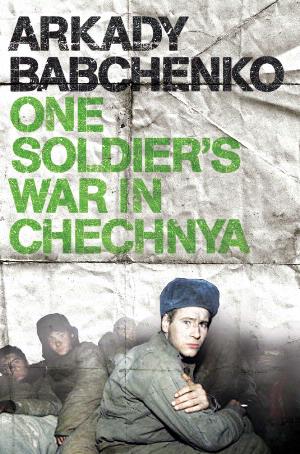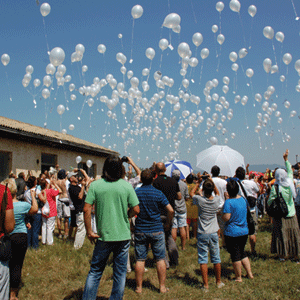 Of all recent wars, Chechnya is the cruellest. The savagery of both sides was fuelled by fanaticism, incompetence, confusion and atavistic hatreds. The Chechens perverted proud warrior traditions into the sadistic and taunting torture of any Russian they captured. The Russian conscripts, untrained, immature and terrified, killed women, children and villagers indiscriminately because they had little idea of what they were doing or how to survive in such hostile terrain.In fact there were two Chechen wars, 1994–96 and 1999–2000, although this second one arguably continues still. The outside world knew little of either. Reporting the conflict was exceptionally dangerous. After the brutal first onslaught, the Russians soon realised that television cameras would expose the ferocity of their bombardments, and tried to ban journalists from travelling there. Russian media were muzzled and only the lone voice of one brave woman, Anna Politkovskaya, spoke out against the official line – a record of courage for which she eventually paid with her life. Western correspondents continued to sneak down to the war zone but faced an ever greater risk of being kidnapped by Chechens. The beheading of three Western telephone engineers sent a chilling warning to even the most intrepid reporters.
Of all recent wars, Chechnya is the cruellest. The savagery of both sides was fuelled by fanaticism, incompetence, confusion and atavistic hatreds. The Chechens perverted proud warrior traditions into the sadistic and taunting torture of any Russian they captured. The Russian conscripts, untrained, immature and terrified, killed women, children and villagers indiscriminately because they had little idea of what they were doing or how to survive in such hostile terrain.In fact there were two Chechen wars, 1994–96 and 1999–2000, although this second one arguably continues still. The outside world knew little of either. Reporting the conflict was exceptionally dangerous. After the brutal first onslaught, the Russians soon realised that television cameras would expose the ferocity of their bombardments, and tried to ban journalists from travelling there. Russian media were muzzled and only the lone voice of one brave woman, Anna Politkovskaya, spoke out against the official line – a record of courage for which she eventually paid with her life. Western correspondents continued to sneak down to the war zone but faced an ever greater risk of being kidnapped by Chechens. The beheading of three Western telephone engineers sent a chilling warning to even the most intrepid reporters.
Grozny was reduced to ruins. Russian casualties streamed back from the south while Yeltsin dithered. A ceasefire was signed in 1996, giving Chechnya de facto independence. But it was an uneasy truce, and when Chechen militants tried to provoke Moscow by attacks in neighbouring Dagestan, Vladimir Putin, then Prime Minister, saw his chance. Russia launched a second war in 1999, waged with equal ruthlessness but much greater effect. Chechen separatists were driven into the hills, the former president and leading warlord were killed and a puppet pro-Moscow government was installed in Grozny. Peace, of a kind, has now been established – at a terrible cost. Hundreds of thousands of Chechens are dead or missing, mainly civilians. There are no figures for Russian losses, but military deaths in the two wars are thought to be at least equal to the 15,000 lost in Afghanistan.
Arkady Babchenko fought in both wars – first as a raw, untrained 18-year-old Moscow conscript, later as a volunteer regular soldier during the second conflict. One Soldier’s War in Chechnya is the extraordinary result, as damning as it is harrowing. It tells all those stories that were never allowed to appear in the press at the time: the bullying, the brutality, the incompetence of the military leaders and the appalling conditions in which young Russians conscripted from the villages fought and died.
The stench of death pervades the book. “We were herded into this war and killed by the hundred. We didn’t even know how to shoot; we couldn’t kill anyone, we didn’t know how. All that we were capable of was crying and dying. And die we did. We called the rebels ‘uncle’, and when our boys’ throats were cut at the block posts, they’d beg the rebels, ‘Please, uncle, don’t kill me, what did I ever do to you?’ We so wanted to live. Get that into your heads, you fat, smug generals who sent us off to this slaughter. We hadn’t yet seen life or even tasted its scent, but we had already seen death. We knew the smell of congealed blood on the floor of a helicopter in a forty-degree heat, knew that the flesh of a torn-off leg turns black and that a person can burn up entirely in lit petrol, leaving just the bones.”
Babchenko does not spare the reader. Much of the violence early on was meted out by older soldiers on new recruits: the terrible, age-old pattern of hazing, known in Russian as dedovshchina. In one recent scandalous example a conscript had to have his legs and his testicles amputated after they had been beaten to a pulp by bullies. Babchenko tells us how he was hit, kicked, sent out on futile errands, had his lip split, his face smashed and his sanity all but destroyed by notorious sadists in his unit. He never fought back: he knew the consequences.
He survived, though the waiting to be sent into action proved so debilitating that he begged to join friends and comrades at the front. But he grew up fast. He grew cynical, learnt to steal, scrounge, falsify accounts, feign illness to get into hospital and protect himself – from fellow Russians as well as from Chechens. His account is vivid, stark and horrifying. The cruelty is all the more wrenching because of the moments of fleeting, lyrical beauty – when he remembers the distant world beyond the war, when he has a rare good meal, when he sees a patch of landscape that has not been churned and burnt by war.
Babchenko, like the best war reporters, is able to report war how it is, but also to reflect on it. He understands the Chechens, he even feels sorry for some of them. And he learns the eternal lessons of survival, passed down by one soldier to another: “You have to look after three things here: your feet, your teeth and your head.” He also knows the reek of fear, the agony of lying all night, hungry and freezing, in a marsh, waiting for the unseen attack.
Babchenko’s honesty is unblinking, his prose at times unbearable: “The Chechens started killing our prisoners... They laugh and shout something at us in their language and then quickly put one of the prisoners on his side on the asphalt, pin his head with a foot and stab him twice in the throat with a knife. The boy jerks his tied hands and whimpers, and a black trickle spreads from his slashed throat onto the road.” It is a tour de force. A grim testament to the worst of wars. ■
One Soldier's War in Chechnya is published by Portobello Books

